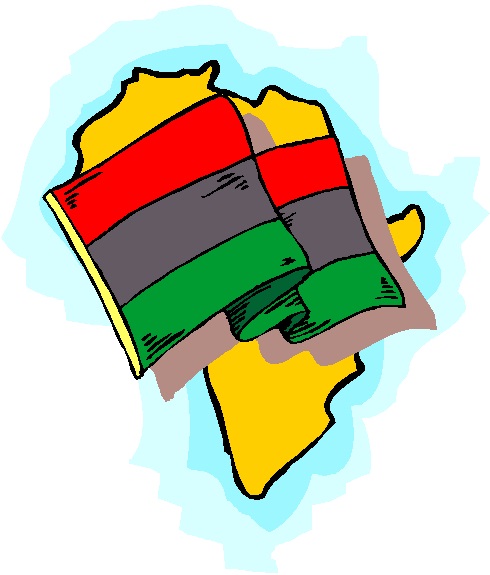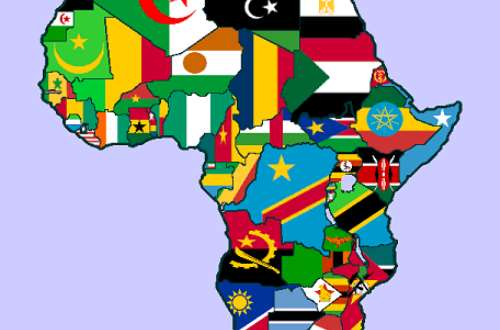Last Updated on January 14, 2023
The emergence of modern nation-states in Africa is a complex and diverse topic with deep historical roots. Over the centuries, various forces such as colonialism, imperialism, and the slave trade have shaped Africa.
Practically all of these events have left an indelible mark on the continent and its people. And they have played an important role in the formation of modern African nation-states.
During the nineteenth and early twentieth centuries, European powers colonized Africa, carving it up into territories and imposing their own systems of government and administration.
This period of colonialism had a significant impact on African development, as it resulted in the forced displacement of millions of people, the suppression of traditional cultures and societies, and the imposition of foreign systems of governance and economic exploitation.
However, the continent still faces many challenges, including poverty, conflict, and poor governance, which continue to hinder the emergence of truly modern and stable nation-states in Africa.

African Nationalism
African nationalism is a broad term referring to a set of political ideologies in Sub-Saharan Africa. These ideologies are based on the concept of national self-determination and the establishment of nation-states. It all started during European colonial rule in the 19th and 20th centuries, loosely inspired by European nationalist ideas.
Read: The Role of African Resistance Movements in the Struggle Against Colonialism
Originally based on demands for self-determination, African nationalism played a significant role in forcing Africa’s decolonization process (1957–1966).
However, the term refers to a diverse set of ideological and political movements. And it should not be confused with Pan-Africanism, which seeks the federation of several or all African nation-states.
History of the African Nationalism
Nationalist ideas in Africa emerged in the mid-nineteenth century among West Africa’s emerging black middle classes. The early nationalists had hoped that by establishing nation-states, they could overcome ethnic fragmentation.
It was inspired in its early stages by African-American and Afro-Caribbean intellectuals from the Back-to-Africa movement. They imported nationalist ideas and principles prevalent in Europe and the Americas at the time.
Early African nationalists were elitists and believed in the superiority of Western culture, but they desired a larger role in political decision-making. They rejected African traditional religions and tribalism as “primitive” and embraced Christian, modern, and nation-state ideas from the West.
The divisions of tribes and the formation of ethnicism, however, were one of the challenges faced by nationalists in unifying their nation after European rule.
African nationalism emerged as a mass movement in the years following World War II as a result of post-war changes in the nature of colonial rule as well as social change in Africa. Then, nationalist political parties emerged in almost all African colonies during the 1950s. Their rise was a major reason for Africa’s decolonization between 1957 and 1966.
Read: What Happened During Apartheid in South Africa?
The Radical Movements of African Nationalism
Nationalism in Africa was never a single movement, and political groups considered to be African nationalists varied by economic orientation and degrees of radicalism and violence.

African nationalist leaders struggled to find their own social and national identity following the European influence that controlled the political landscape during the colonial occupation.
Additionally, African nationalism in the colonial era was frequently framed solely in opposition to colonial rule, leaving it unclear or contradictory about its other goals. African nationalism would not have emerged without colonialism, according to historian Robert I. Rotberg.
Its relationship with Pan-Africanism was also ambiguous. It was many nationalist leaders professing Pan-African allegiances but refusing to commit to supranational unions. African nationalists of the time were also chastised for continuing to use ideas and policies associated with colonial states.
Nationalists, in particular, attempted to preserve national frontiers established arbitrarily under colonial rule after independence and to instill a sense of national identity among the diverse populations within them.

The Nation-Building Challenges
One of the most significant challenges to African nation-building has been the continent’s diverse ethnic and cultural groups’ lack of a common national identity. As a result, various ethnic and cultural groups have sought to establish their own independent nations.
This is then resulting in ongoing conflicts and struggles for self-determination in many parts of the continent. An example of this is the Biafran movement in Nigeria.
Although their purpose has not been fulfilled, their movement has been active and surviving to date. Their struggle over the years continues to be countered by the Nigerian government. Thereby leading to unsettlement and misuse of power.
Recall that the head of the movement Nnamdi Kanu has recently been detained and taken in and out of court. To date, no reasonable judgment has been passed in court but he is still being held in detention.
Another challenge has been poor governance and a lack of effective institutions to govern and manage the country. Many newly independent nations were left with weak economies, underdeveloped infrastructure, and little experience with self-government.
This has resulted in ongoing conflicts, corruption, and poor economic performance in many African countries.
Recent Developments
Despite the aforementioned challenges, Africa has made significant progress in nation-building and economic development over the last few decades. Many countries have seen economic growth — development while improving infrastructure, education, and healthcare, at least, to some extent.
However, the continent continues to face numerous challenges, including poverty, conflict, and poor governance. And sadly, these factors continue to impede the emergence of truly modern and stable African nation-states.
The African Union is working to promote greater integration and cooperation among African nations. This was to create a more united and prosperous continent.
Furthermore, many African countries have been working to improve their economic performance and attract foreign investment. This is geared towards spurring economic growth and development.
The Impact of the Emergence of Modern Nation-States in Africa
The emergence of modern nation-states in Africa has had both significant positive and negative impacts on the continent. On one hand, the establishment of democratic governments and the expression of distinct cultural and ethnic identities has resulted from the formation of independent states.
And the process of nation-state formation, on the other hand, has resulted in conflict, oppression, and economic inequality.

Positive Impacts of Modern Nation-States in Africa
One of the most positive consequences of African nation-state formation has been the ability of various ethnic and cultural groups to express themselves. And. also assert their rights within a political framework.
The end of colonial rule in many African countries in the mid-twentieth century signaled the beginning of a new era. It heralded a time when indigenous peoples could take control of their own destinies. This has also formed strong national identities and the emergence of vibrant cultural and artistic movements across the continent.
Another positive effect of nation-state formation has been the establishment of democratic governments in many African countries. The ability to freely elect leaders and hold them accountable — through regular elections has resulted in more responsive and accountable government, as well as greater political stability.
Negative Impacts of Modern Nation-States in Africa
However, the process of nation-state formation has also had negative impacts on Africa. One of the most significant of these has been the outbreak of conflict and civil war. Which is frequently fueled by ethnic and religious differences.
And, the failure of many newly independent countries to establish a sense of national unity has resulted in divisions and tensions that have erupted into violence. Furthermore, the process of nation-state formation has resulted in economic inequity and poverty in most countries.
The concentration of power and resources in the hands of a small elite has been marginalized. This means making sure to exclude large segments of the population from the benefits of economic development.
Finally, African leaders and the international community must continue to work together to address these issues in order to build a more stable and prosperous future for all Africans. Africa is the Africans’ home and they have to be able to live like they are home someday. Enough of the seclusion and orchestrated suffering.
The Future of Nation-States in Africa
The nation-state model, inherited from Europe and imposed during the colonial era, has been criticized for failing to promote unity and stability. As well as for concentrating power and resources in the hands of a small elite.
Regardless, with the right adaptations and policies, the nation-state model can be strengthened to meet the continent’s unique needs. It all depends on the leaders making decisions and following them to the last point.
In addition, the future of the African nation-state is intertwined with world trends such as globalization, regional integration, and the rise of non-state stakeholders. These trends have the potential to undermine the nation-state model, but they can also help it.
Regional integration, for example, can help to promote economic development and stability — whilst globalization can create new opportunities for trade and investment.
To achieve this, it is important for African leaders and the international community to continue to engage in negotiations and cooperation in order to find solutions to the continent’s challenges. And to build a more stable, prosperous, and inclusive future for all Africans.
Before you go…
Hey, thank you for reading this blog to the end. I hope it was helpful. Let me tell you a little bit about Nicholas Idoko Technologies. We help businesses and companies build an online presence by developing web, mobile, desktop, and blockchain applications.
We also help aspiring software developers and programmers learn the skills they need to have a successful career. Take your first step to becoming a programming boss by joining our Learn To Code academy today!
Be sure to contact us if you need more information or have any questions! We are readily available.











